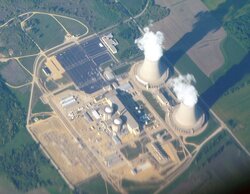This is an encouraging trend. It's startling how much the cost per watt has changed since just 2004.
http://tinyurl.com/24npek4
Why is this important? In the energy independence thread it was brought up that Spain is having problems with a glut of wind power as a result of offering very high incentives based on tax breaks and premiums for their energy production. The program's temporary problem is that it was too successful. Over 50% of Spain's power is now generated by wind. I say temporary, because as electric vehicles come on line, the load on the electrical infrastructure will rise, perhaps dramatically.
So why not here? Well it is happening, but some big utilities and energy producers are fighting it because the energy produced is very cheap and it pushes down the more lucrative revenues gained from gas, etc. http://www.bloomberg.com/news/2010-04-22/windmill-boom-curbs-electric-power-prices.html The gist of the article is that some folks are worried about the stock market value of the company going down because it is succeeding at delivering cheaper power.
I still think this is a temporary issue. We will see some countries developing systems to store energy in the human infrastructure via their cars and homes. But what an upside down world. Why should the stock market dictate common sense efficiencies with the energy infrastructure. This is where the private sector goes amuck. Their values get switched from their core customers, the ones paying the bills, to an abstract paper customer, the shareholder. This is an intrinsic conflict of interest. These conflicting needs are often in opposition to each other.
http://greeneconomypost.com/wind-makes-power-too-cheap-10939.htm
http://tinyurl.com/24npek4
Why is this important? In the energy independence thread it was brought up that Spain is having problems with a glut of wind power as a result of offering very high incentives based on tax breaks and premiums for their energy production. The program's temporary problem is that it was too successful. Over 50% of Spain's power is now generated by wind. I say temporary, because as electric vehicles come on line, the load on the electrical infrastructure will rise, perhaps dramatically.
So why not here? Well it is happening, but some big utilities and energy producers are fighting it because the energy produced is very cheap and it pushes down the more lucrative revenues gained from gas, etc. http://www.bloomberg.com/news/2010-04-22/windmill-boom-curbs-electric-power-prices.html The gist of the article is that some folks are worried about the stock market value of the company going down because it is succeeding at delivering cheaper power.
I still think this is a temporary issue. We will see some countries developing systems to store energy in the human infrastructure via their cars and homes. But what an upside down world. Why should the stock market dictate common sense efficiencies with the energy infrastructure. This is where the private sector goes amuck. Their values get switched from their core customers, the ones paying the bills, to an abstract paper customer, the shareholder. This is an intrinsic conflict of interest. These conflicting needs are often in opposition to each other.
http://greeneconomypost.com/wind-makes-power-too-cheap-10939.htm


